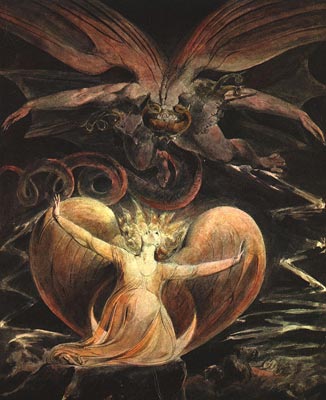From the archives...
You don’t usually need a TV guide to know what films are on over Christmas. Every year, without fail, there are some classic films that return to our screens. It just wouldn’t be Christmas without The Wizard of Oz, The Sound of Music, or It’s a Wonderful Life.
There are two seasonally shown films that strike a chord with the events recorded in the second chapter of Matthew’s gospel. They are The Great Escape and The Italian Job. The latter is that classic British movie with Michael Caine and Noel Coward, but starring three Mini Coopers. More recently another film with the same name, loosely based on the original, was released.
A remake rarely lives up to the original. That observation, however, does not hold true for Matthew chapter two. In fact we will miss Matthew’s point unless we see that the events surrounding the birth of Jesus are in fact a remake of Old Testament events that surpass the originals.
A lesson in history
The connections between the OT Matthew 1-2 are obvious if we take a bird’s eye view of these chapters. We start off with a lesson in history. Matthew shows us the fulfilment of a promise made to Abraham and the descent of the crown through the line of David (1:1-17). We need to know that Jesus is descended from this particular family, a royal family. Matthew tells us about the birth and infancy of Jesus in five sections. Each section has a passage from the OT that is being fulfilled. The sections are:| Matthew 1-2 | OT passage |
| 1:18-25 | Isaiah 7:14 ‘all this took place to fulfill what the Lord had said through the prophet’ (v22) |
| 2:1-12 | Micah 5:2 (2 Sam 5:2) ‘for this is what the prophet has written’ (v5) |
| 2:13-15 | Hosea 11:1 ‘and so was fulfilled what the Lord had said through the prophet’ (v15) |
| 2:16-18 | Jeremiah 31:15 ‘then what was said through the prophet Jeremiah was fulfilled’ (v17) |
| 2:19-23 | ‘So was fulfilled what was said through the prophets: “He will be called a Nazarene”.’ (v23) |
The king who opposes God’s Son (Matt. 2:1-16)
When Matthew shows us what happened when the Magi met Herod we are witnessing a remake of the opening chapters of the book of Exodus.
The remake has some surprising reversals. For one thing the OT has consistently portrayed the magicians and wise men of the nations as the bad guys who always come second when they clash with God’s people. Witness the power encounter between the magicians of Pharaoh’s court and Moses and Aaron (Ex. 8:7,18). Fast forward to the time of Daniel and we see the same outcome (Dan. 2:1-16,25-28). Yet here in Matthew 2 the Magi have greater insight than the Jews. They are coming to worship the Christ. Herod, even with the knowledge he has of the Messiah’s birth, seeks to destroy him.
A further reversal of roles unfolds in Herod’s decree to slaughter all the male children in Bethlehem aged two and under (2:16). Whilst this may ring true to what we know of Herod’s character we are also meant to see in his attitude and actions an echo from the OT. Herod, king of the Jews, is playing the part of Pharaoh, king of Egypt. This takes us back to Exodus 1:15-22. Herod is doing what Pharaoh did in opposition to God and His people.
But there is more. Even though Matthew has five sections where the prophets, or the words of the OT are said to be fulfilled, these do not exhaust his OT references. Some of the connections are subtle. We have seen in the actions of Herod an echo of the actions of Pharaoh. We can also see a further reference behind the words in verses 19-20:
After Herod died, an angel of the Lord appeared in a dream to Joseph in Egypt and said, ‘Get up, take the child and his mother and go to the land of Israel, for those who were trying to take the child’s life are dead’. So he got up, took the child and his mother and went to the land of Israel.Compare Matthew’s account with the words of Exodus 4:19-21:
Now the LORD had said to Moses in Midian, ‘Go back to Egypt, for all the men who wanted to kill you are dead’. So Moses took his wife and sons, put them on a donkey and started back to Egypt. And he took the staff of God in his hand.In the original it was Moses who had to flee Egypt and was later told to return. In the remake it is the land of Israel, not Egypt, that they have to flee from, and the land of Israel that they are eventually told to return to. Everything has been reversed. Israel has become Egypt, and Herod has become Pharaoh.
This is a shock and a warning. This is a sign of judgement on Israel. This is also a sign of things to come. We see here the pattern of rejection for Jesus who will deliver His people. Indeed Moses the redeemer was rejected by Israel and welcomed by the nations (Ex. 2:1-22; Acts 7:35) foreshadowing what would happen when the true Redeemer would come. This is also a sign of hope. God is safeguarding the Saviour, just as he did with Moses.
























